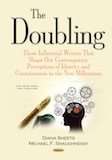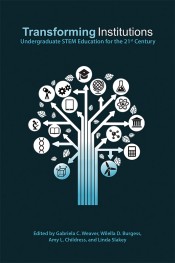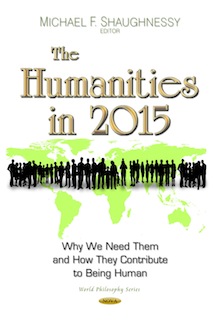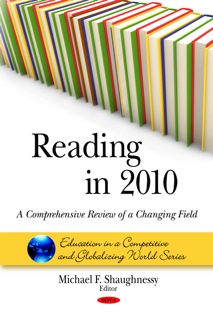The Influences Driving Obama's Narrative: What's at Stake in the Civil War Between Democrats and Republicans in the 2010 Elections
Copyright © 2010 by Diana E. Sheets
Last month, Literary Gulag examined Carl Schmitt’s The Theory of the Political and Saul Alinsky’s Rules for Radicals in order to provide an analytical basis on which to assess the Democratic Party’s strategy (http://www.literarygulag.com/blog/show/56). This month, Literary Gulag will examine underlying tenets of the Obama narrative based on Schmitt’s friend/enemy political dichotomy before considering how Alinsky has influenced Democratic Party strategy.
Literary Gulag contends that there is a Civil War underway between Liberals and Conservatives. What is in dispute are two fundamentally different views of
THE INFLUENCES DRIVING OBAMA’S NARRATIVE
The Post-American Presidency
For more than three generations following the end of the Vietnam War,
As
Dinesh D’Souza concurs, noting, “The American dream has been very good for Obama, making his success possible. But it is not what he cares about; as we have seen, he explicitly rejects the idea that
Imagine a little boy growing up in the sunbathed beauty of
Or in Obama’s own words, “It was into my father’s image, the black man, son of Africa, that I’d packed all the attributes I sought in myself” (D’Souza, Chapter 2, 355-66, citing, Dreams from My Father, Three River Press, 2004, 220).
The foundations of Obama’s worldview were inculcated in
Just what are the tenets of anti-colonialism with their inimitable ties to Marxism and socialism? As summarized by D’Souza, they may be characterized as follows: first, colonial rulers achieve these conquests through murderous acts that are sustained by means of terror; second, colonial rulers systematically dehumanize indigenous populations; third, colonial rulers loot the wealth and resources of the country they occupy; fourth, neocolonialism, that last bastion of colonial domination, is personified by United States; and fifth, the only way to end neocolonial rule is by expelling America and embracing socialism, the countervailing influence to global capitalism (Chapter 2, 411-500).
Given the tenets of anti-colonialism with their emotional connotations for Obama as the root cause of his father’s humiliation and failure, the outcome, D’Souza argues, is a post-American president who does not have our interests at heart. Following the inclinations of his father who as an economist wanted to nationalize Western assets in
Nor was this post-colonial advocacy on behalf of “disenfranchised nations” an isolated incident. Present Obama supported the 2009 UN Summit “cap and trade” legislation that stipulated $100 billion be provided by Western industrialized nations to offset carbon limits by developing countries. Not surprisingly, the measure was never approved by Congress, despite the Democratic majority in both houses. In 2007, while serving as senator, Obama sponsored the Global Poverty Act that called for
While most Americans support measures to ensure a cleaner environment both at home and abroad, the troubling question remains: How can this be achieved when developing nations disregard “green” policies in order to further their economic growth and America, meanwhile, finds herself struggling to remain economically competitive vis-à-vis the emergent countries while fighting a multi-front war against terrorism and endeavoring to recover from a recession that has brought suffering to the lives of many in the United States?
This challenge is compounded if we acknowledge that the agenda of our post-American president is more global than national. Obama’s worldview reflects the perspective and arguments made by Fareed Zakaria in The Post-American World (W.W. Norton & Company, 2008). Zakaria suggests that while the United States is still a dominant power throughout the world, economic and political influence is, nevertheless, shifting away from America toward the powerhouse of developing nations (Chapter 1, “The Rise of the Rest,” Kindle Edition, 52-84). This argument is supported by an assessment at Goldman Sachs that forecasts by 2040 the developing economies of China, India, Brazil, Russia, and Mexico will outperform the most influential Western economies aligned in the G-7—France, Germany, Italy, Japan, United Kingdom, and the United States—(Chapter 2, 367-78. Since the publication of The Post-American World, the G-7 has expanded to encompass the G-20, which includes the powerhouse industrial nations, some influential developing countries, and the European Union).
Zakaria’s position is consistent with the argument made by economists Stephen S. Cohen and J. Bradford DeLong in The End of Influence (2010), which suggests that given the rise of key developing nations and the accumulation of American debt, our influence is on the wane (D’Souza, Chapter 8, 2446-62). What, then, may we infer from D’Souza’s argument? Obama’s post-colonial rage causes him to be more interested in remedying the inequities of the developing nations than protecting our national interests. Our post-American president is prepared to allocate our critical resources to aid and abet “disadvantaged” nations while pursuing actions that are likely to contribute to the loss of
It would be hard to overestimate the corrosive influence of post-colonial theory and post-modern values that formed Obama’s worldview (see my essays posted on Literary Gulag, “Academe, Theory, and our Cultural Demise,” http://www.literarygulag.com/blog/show/18 and my essay “Barack Obama’s Postmodern Presidency and the Implications for Policy,” http://www.literarygulag.com/blog/show/39). For those readers not residing on campuses since the late 1980s when these concepts became embedded in the academic conceptual firmware, the politics of post-colonial theory conjoined with the espousal of social justice and identity politics in virtually every department of the humanities in American and Western European universities, trumping the Western Canon (that tired, old bastion of “dead, white males”) in favor of the philosophical foundations of “Caucasian guilt” as enshrined in John Rawls’s A Theory of Justice (1971). As I note in “The Great Books and Cultural Identity: The Rise and Fall of Western Memory and Its Implications for Our Time,” Rawls’s “justice as fairness” doctrine shifted the focus from “be fair” to “a sustained advocacy of remedial social justice.” (Consult my essay in
Given that Obama obtained his law degree at
CARL SCHMITT’S: THE THEORY OF THE POLITICAL
The Friend/Enemy Dichotomy With Respect to Liberals and Conservatives
The Obama/Liberal Worldview
The Post-American Presidency
■ “There is no challenge too great for a world that stands as one” (the quote is borrowed from Obama’s 2008
■
■ World peace will be achieved by social consensus, not military might.
■ Resources should be shared (nations/peoples) to ensure equitable distribution.
■ Consensus [feminine] rather than competition [masculine] shall prevail.
■ There are sufficient resources for everyone to share.
■ The only losers will be bullies who seek more than their fare share.
■ Science and technology are of use only in so far as they benefit society. As such, science is a social construct. Mathematics is in service to the social agenda, not scientific truth.
■ Poverty is the outcome of the inequities of capitalism rather than personal failure.
■ Those opposing this worldview will be shunned. They will be removed from power. If they threaten to overthrow the progressive agenda, they will be silenced.
■ Competition and aggression will be penalized since it fosters winners and losers.
■ In this feminized world, the weak, the infirmed, the outcasts shall inherit the earth.
The Conservative Worldview
“American exceptionalism”
■ “Life is difficult and that the world is fundamentally dangerous” (the quote is borrowed from George Lakeoff’s analysis of the Liberal and Conservative worldview in his book Moral Politics, University of Chicago Press, 2002, 65, see my analysis, “Politics & Literature: Framing the Political Narrative for Victory in the 2008 Presidential Election,” http://www.literarygulag.com/blog/show/22).
■ The American vision must prevail even if this requires us to go to war.
■ Wealth and resources go to the winners. Losers suffer economically and socially.
■ Nations and people must assume personal responsibility. Resources are primarily allocated based on national security, corporate performance, and personal initiative.
■ Masculine values (competitive excellence) must prevail over feminized virtues (social justice).
■ Resources are limited. Winners must have greater access to scarce resources than losers since they have earned these rewards. This is the fairness doctrine (not social justice). This will determine whether
■ Science and technology are critical to remaining economically competitive. Space exploration (that male act of aggression and conquest) is a necessity, not a luxury.
■ The economic marketplace rewards and punishes.
■ Competition drives excellence.
■ Weakness begets weakness.
WHAT’S AT STAKE IN THESE COMPETING WORLDVIEWS
Since the presidency of Jimmy Carter (1976-1980), the Democratic Party has had to ask itself a simple question: Are we the party of
No more. Not for nothing did National Review’s cover recently feature Jimmy Carter awash in the tints of Barack Obama’s “Hope” poster with the memorable title, “Hope 1.0.” (
WHO
In today’s poll-driven politics, the challenge in determining who is truly a friend or enemy is complicated by the fact that to win parties necessarily court independent voters who may or may not be fundamentally aligned with their interests. Because of Fox Network and the Tea Party, Obama has shelved or discontinued policies that would benefit his natural constituency.
FRIENDS OF THE OBMAMA ADMINISTRATION
The left-wing base of the Democratic Party who subscribe to social justice. This would include almost all African Americans, many multicultural Americans (in theory, based on voting patterns in the last election), illegal immigrants (although deportation efforts and a failure to provide an easy path to citizenship has corroded this alliance), Americans without health care, young adults (in theory, based on voting patterns in the last election, although given the persistent jobless rates this support could erode), academe, unions, unemployed, environmentalists, proponents of alternative energy, the gay community (in theory, based on voting patterns in the last election), Palestinians and most members of the Muslim community who seek to extend their influence, and Guantánamo detainees whose cases will be heard in federal court rather than in a military tribunal.
ENEMIES OF THE OBAMA ADMINISTRATION
Conservatives and Independents who reject a socialist oriented government. These would include Tea Party Supporters, the Christian Coalition, the Conservative media, particularly Fox News (especially O’Reilly, Glenn Beck, and Sean Hannity), as well as conservative publications including the Wall Street Journal, National Review, Commentary, and the Weekly Standard, Americans who feel marginalized because of Obama’s policies, and most independents, along with some defecting Liberals, minorities, and young people, who are disappointed with the administration. Significant portions of the military, NASA, Wall Street, the big Health Care Providers, pharmaceutical companies, affluent Americans earning in excess of $250.000 who do not embrace progressive causes and higher taxation (although Obama has support among affluent progressive voters), entrepreneurial businesses, and, of course, Israel.
ALINSKY’S RULES FOR RADICALS
If we accept D’Souza’s argument that Obama is a very angry man whose primary motivation lies in fulfilling his father’s post-colonial dreams, then, following Schmitt, Obama is the enemy. He is demonized by conservatives because his agenda is antithetical to their interests. But it is more than that. From the conservative perspective, Obama’s worldview, if successful, will destroy
The competing Democratic and Republican worldviews reflect a state of civil war occurring in
Schmitt explains why the friend/enemy distinction relies on demonizing “the other.” An enemy that is stripped of kinship—“one of us”—and rendered alien may with impunity be attacked.
The political enemy need not be morally evil or aesthetically ugly; he need not appear as an economic competitor, and it may even be advantageous to engage with him in business transactions. But he is, nevertheless, the other, the stranger; and it is sufficient for his nature that he is, in a specially intense way, existentially something different and alien, so that in the extreme case conflicts with him are possible. (The Concept of the Political, 27)
Given that Obama’s progressive mandate is antithetical to the conservative worldview he has been identified by conservatives as “the other.” He is the enemy from within whose worldview is “un-American.” How might such a characterization be made?
To begin with,
Yet beneath that studied aura of calm, what came to be characterized as the “No Drama” Obama, rage percolated. In March of 2009 Gordon Brown, then the Prime Minister of Britain, visited the White House. In a major breech of etiquette, Obama gave the British leader some DVDs that, adding insult to injury, were improperly formatted. By contrast, consider the thoughtfulness of Gordon Brown. He presented Obama with “an ornamental pen holder carved from the timbers of a British anti-slave ship from the 1880s” (D’Souza, 560-71). Nor was this lapse an isolated incident. When the Queen visited, Obama presented her with an iPod (560-71). These insults were much more than the misguided acts of a new president. Anyone familiar with academic sensibilities would immediately recognize these passive-aggressive actions for what they were—attempts to humiliate the Prime Minister and the Queen because of the British domination of colonial Kenya. Should the reader have any doubt, consider that Obama insisted upon returning to the British a bust of Winston Churchill prominently displayed in the Oval Office. Today that bust remains in
Nor were these anti-colonial actions isolated. Obama refused to dine with French Prime Minister Nicolas Sarkozy while staying just steps away at the residence of the
In one of the most bizarre moves of the Obama administration, NASA administrator Charles Bolden, in a program “Talk to Al Jazeera” aired on Al Jazeera television in June of this year, told audiences that one of the primary missions Obama had charged him with was reaching out to the Muslim world in order to “engage much more with dominantly Muslim nations to help them feel good about their historic contribution to science and engineering . . . .” Had it not been for Fox News and the Los Angeles Times, Americans would not have discovered that NASA’s responsibilities were being downgraded from space exploration to a public relations gesture to make the Muslim world feel good about their contributions to science and engineering (Judson Berger, “Former NASA Director Says Muslim Outreach Push ‘Deeply Flawed’ Fox News, July 6, 2010, http://www.foxnews.com/politics/2010/07/06/nasa-official-walks-claim-muslim-outreach-foremost-mission/. The actual video may be viewed at the Los Angeles Times, Top of the Ticket, Political Commentary from Andrew Malcolm, “If you watched Al Jazeera, you know Obama’s new mission for NASA: To help Muslim nations ‘feel good,’” July 8, 2010, http://latimesblogs.latimes.com/washington/2010/07/nasa-muslim-world-charles-bolden.html).
Indeed, the Obama administration’s relations with
Foreign policy issues are not the only occasions when Americans have observed the “otherness” of Obama. Recall the incident when Obama was running for president he counted sixty, not fifty, states in America, noting that he had only campaigned in 57 of them (Top of the Ticket, Political Commentary from Andrew Malcolm, “Barack Obama wants to be president of these 57 United States,” May 9, 2008, http://latimesblogs.latimes.com/washington/2008/05/barack-obama-wa.html). More recently, in response to Governor Jan Brewer’s immigration law, Obama stated erroneously, “Being an American is not a matter of blood or birth, it’s a matter of faith” (D’Souza, 671-81). Then, of course, there is Obama’s wavering stance on the
These and other initiatives help to explain why so many Americans have insisted, all evidence to the contrary, that Obama was not born in
THE THEORY OF THE POLITICAL IN CONJUNCTION WITH RULES FOR RADICALS
However, to understand Obama’s motivations readers must understand the links between Schmitt’s The Theory of the Political and Alinsky’s Rules for Radicals (http://www.literarygulag.com/blog/show/56). If Obama’s accepts, as do many post-colonial theorists, that
But it is Alinsky who provides Obama with the strategy by which our post-American president, will divest
The financial crisis provides Obama with what Alinsky would characterize as the “reformation” to transition
Most Americans would support intervention by the government to prevent a national or global depression. Many welcomed the impetus for health care reform. Some see the need for financial regulation to ensure that our economy is not destabilized. Others long for a reasonable solution to the immigration issue. However, what if these “reforms” are not what they purport to be? What if their real intent is to provide the basis for lasting institutional changes that fundamentally transform the American experience? What if these policies represent a stealth or not so stealth effort to legislate an ever-lasting Democratic victory bolstered by demographic changes brought about through immigration reform? Indeed the ethnic demographic argument was made by Peter Brimelow and Edwin S. Rubinstein in a cover story for National Review back in June, 1997 entitled, “Electing a New People.” The essay opened with “Demography is destiny in American politics.” In 2001 both authors followed it up with “Swept Away,” an essay that appeared in the Hudson Institute’s American Outlook. It predicted a demographic shift in the 2008 election that would propel the Democrats to perpetual power (see Brimelow’s post on this subject, http://www.vdare.com/pb/swept_away.htm).
Indeed, last month President Obama assured Hispanics, a critical voting block, at a dinner for the Congressional Hispanic Caucus Institute of his intention to legislate immigration reform: “I will not walk away from this fight. My commitment is getting this done as soon as we can.” Adding, “But don’t forget who is standing with you, and who is standing against you. Don’t ever believe that this election coming up doesn’t matter. . . . Don’t forget who your friends are” (Jeff Mason, “Obama: I’m not walking away from immigration reform,” editing Todd Eastham, Reuters,
Then there is the so-called “Dream Act” that proposes military service and educational opportunity as a path to citizenship for young adults who came here as children without proper documentation and who are willing to enlist. As of last month a Republican filibuster in the Senate prevented its passage (“Dream Time,” editorial, The New York Times, September 19, 2010, http://www.nytimes.com/2010/09/20/opinion/20mon2.html and Ben Penn, “Dream Act Still a Dream of Obama,” Youth Today, October 12, 2010, http://www.youthtoday.org/view_article.cfm?article_id=4377.
But what if these and other so-called reforms introduced by our post-colonial leader of the post-American world result in an economically impoverished America no longer capable of competing in the global marketplace?
Alinsky’s Rules for Radicals is important because it proposed the operative strategy by which Obama can achieve the reformation on route to the radical implementation of his “Brave New World.” To accomplish this change, as Alinsky noted, the leader implementing these changes must appear “passive, affirmative, non-challenging” (Vintage Books, 1989, xix). The leader must be resilient and adapt the strategies to accommodate the ever changing circumstances of political warfare. For as Alinsky notes, “the free-society organizer is loose, resilient, fluid, and on the move in a society which is itself in a state of constant change” (11).
In a sense the Democratic Party has been looking for a leader to accomplish this goal since the 1960s. Since the 1980s it has been searching for a black leader who could convey the promise of a multicultural
The point here is not to rally animosity toward an African-American president. The purpose is to suggest that leadership in service of American interests should be color-blind. Just because an American President is African American, charming, handsome, articulate, and engaging does not qualify him as the leader best able to further American interests. Indeed, had Barack Obama not been African American, it is doubtful, given his lack of experience, that he ever would have been selected by the Democratic Party to run for president.
What is being argued here is that Americans must remove the mask of the carefully constructed persona of our president and ask the following: “What is motivating the policies of Obama?” If neo-colonial rage toward
Literary Gulag does not question the moral conviction of our president. Certainly, President Obama believes his intentions are noble. But ultimately the question is whether his worldview is beneficial or harmful to the long-term interests of
PROGNOSIS OF THE UPCOMING ELECTIONS
Literary Gulag forecasts that on November 2nd Republicans will gain control of the House, have a long shot at winning the Senate, and return a majority of Republican Governors.
As of now Dick Morris, Republican strategist, pollster, and conservative analyst, suggests “Republicans lead in 53 House seats now held by Democrats and are within five points in 20 more, the margins are very thin.” For this reason, he concludes, voter turnout is critical (“Outcome Relies on Turnout,”
Literary Gulag urges Americans to vote on November 2nd. Our future is in your hands.









